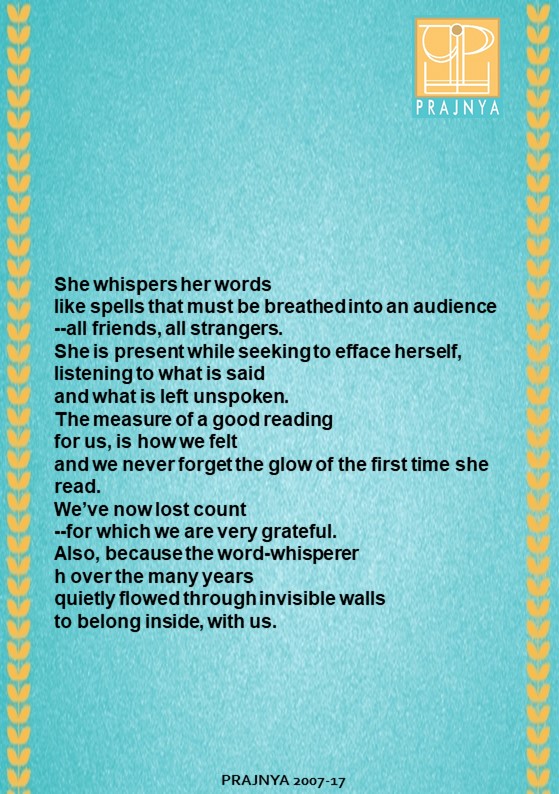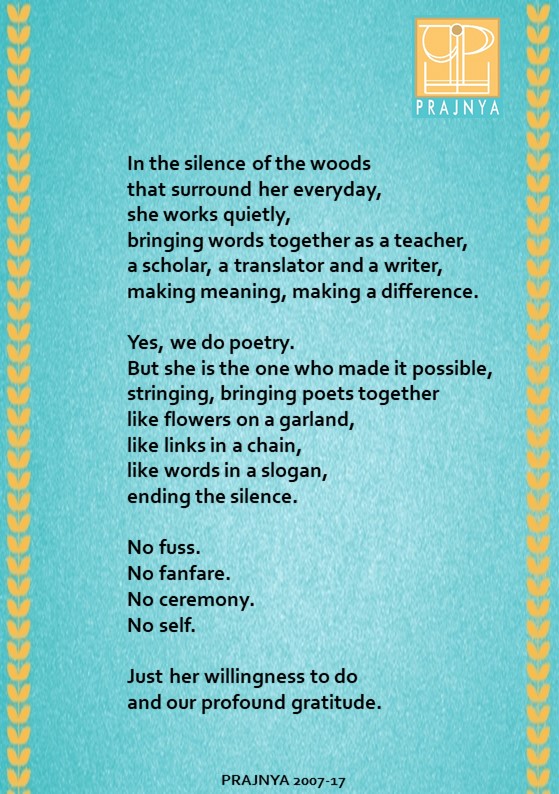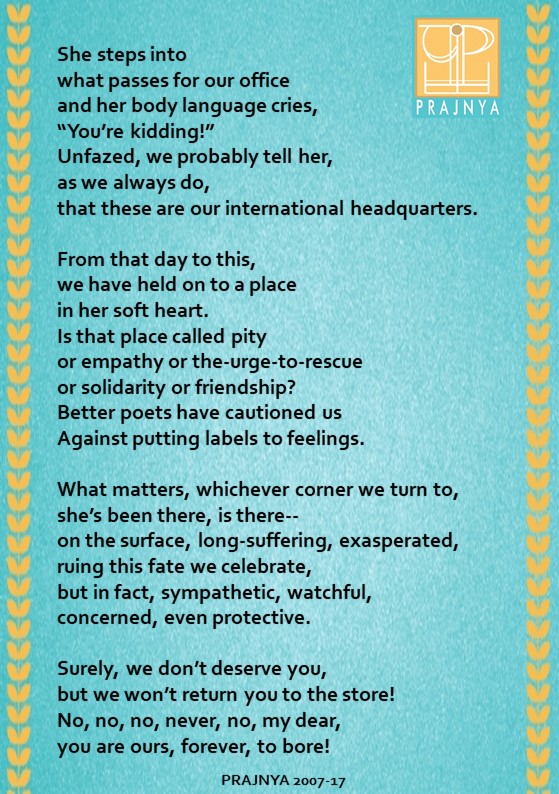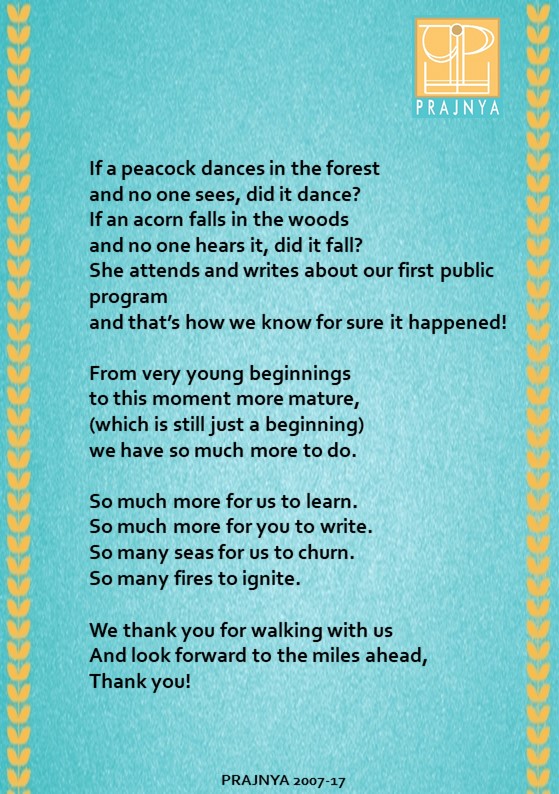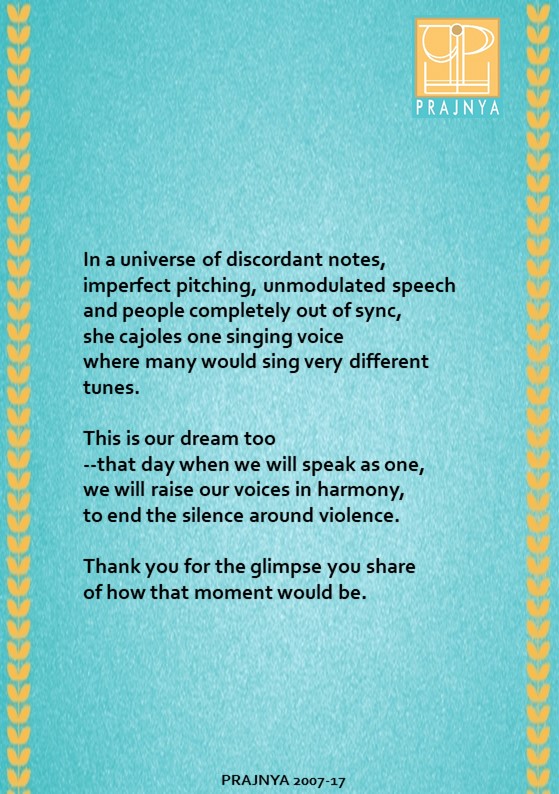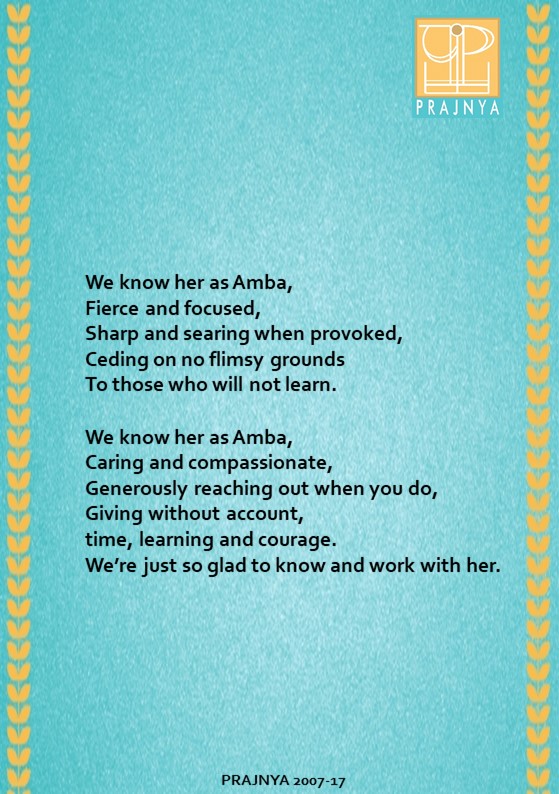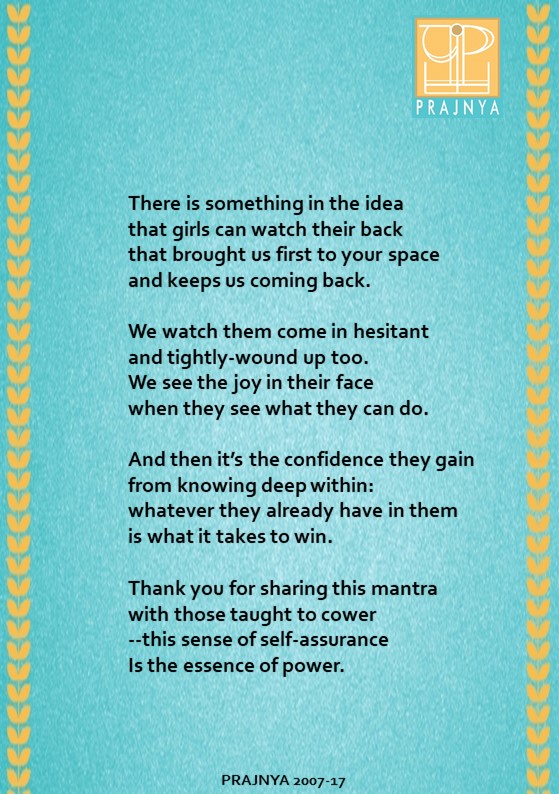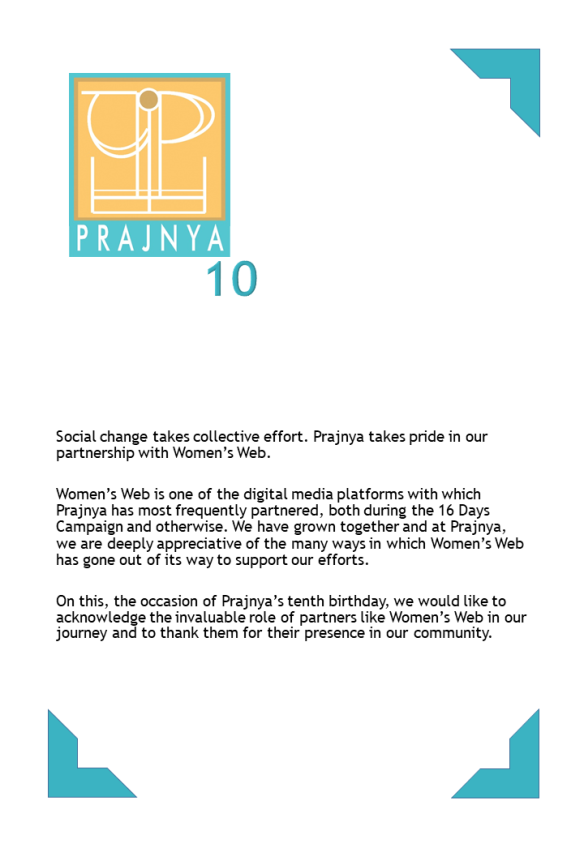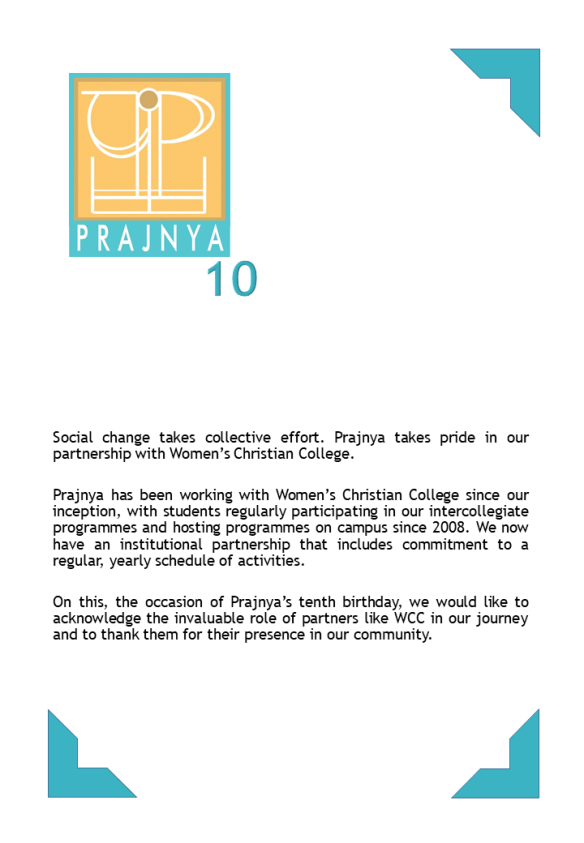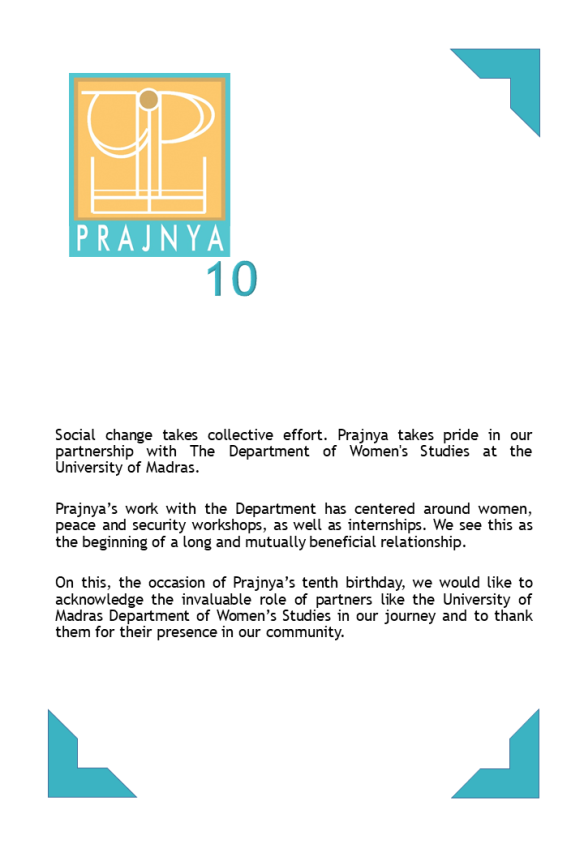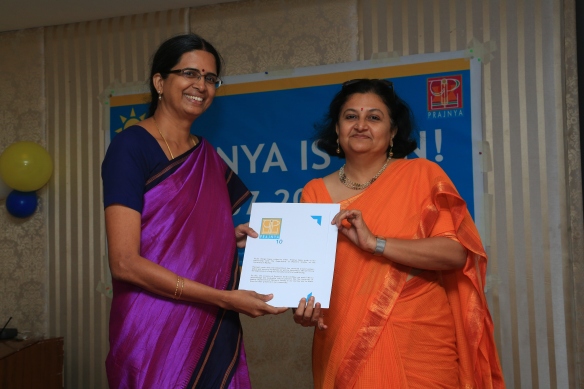This is the time of year when people email me and say that they/their students would like to intern or volunteer with Prajnya. In principle, we welcome everybody. In practice, we’ve learnt there are some caveats and some concerns.
For an internship or volunteer experience to work, both sides need to benefit and both sides need to feel good about the contribution of the intern/volunteer.
So we have learned what the caveats are that we need to issue, beyond the mandatory, there is no money for this work.
1. We are not a service organization. So if someone is seeking a feel-good task like visiting the elderly, bathing strays in a shelter or distributing food packets, then we may be able to suggest another organization that can use your help. But we just don’t do that work.
2. We don’t have an office. So it’s not possible to come and help in the office every Thursday morning.
3. We actually don’t have assignable tasks. We are so small we only have responsibilities we are happy to share with or delegate with volunteers. In fact, ALL Prajnya core team members are volunteers. We give our time, while earning a living. So the work happens all the time, and yet not all the time.
For most people seeking to give time to an organization, this doesn’t work. And we understand that. Life is so demanding these days, we really appreciate the time people give us or your intention to volunteer somewhere.
What does work for us is when people slowly start coming to our programmes like the monthly roundtables or to engage with us on social media, and then start getting more and more involved over a period of time. Every single person who is now a pillar has started gingerly and then taken ownership of the Prajnya vision. And we welcome that.
What sort of person can best do that?
1. Someone with flexible time and mobility.
2. Someone who communicates promptly.
3. Someone for whom our cause strikes a chord.
4. Someone willing to start over and learn something new.
I always think Prajnya is a good fit for people in their forties, seeking to re-enter the workplace, but not necessarily in need of paid work. You have education, skills, mobility and life-experience. You may enjoy working with us.
What skills do we need? All skills. We often tell people who visit: Prajnya is like an Indian wedding. People come and go. Pick up the work in front of you so it gets done–folding clothes, putting away newspapers, whatever. Give yourself and us the time to discover what is your niche, the responsibility you can undertake most comfortably. And be prepared to be called out for everything–particularly at programmes, it’s all hands on deck.
If you are around, there are things we can imagine doing because you’re there to help do them. If no one is around, we hesitate to create work. At that moment, when a volunteer organization approaches us, we have only the haziest ideas. So show up, get involved and we will know what we can hand over to you.
We do need more people right now. We need people to come in now and grow familiar with our work. Our work has grown in the last two years but our team has not. Moreover, because it’s a team of young people, we have to endure through waves of coming and going–new jobs, new studies, new marriage, new baby.
Still want to help but don’t have a long time. Don’t hesitate to email us: prajnyatrust@gmail.com. Tell us about yourself. Think in terms of skills you bring on board (can you improve our design skills?). Think of your hobbies (do you like to read? can you do reviews for us?).
This work belongs to all of us. Feel free to check in with us to see what’s there to be done.

